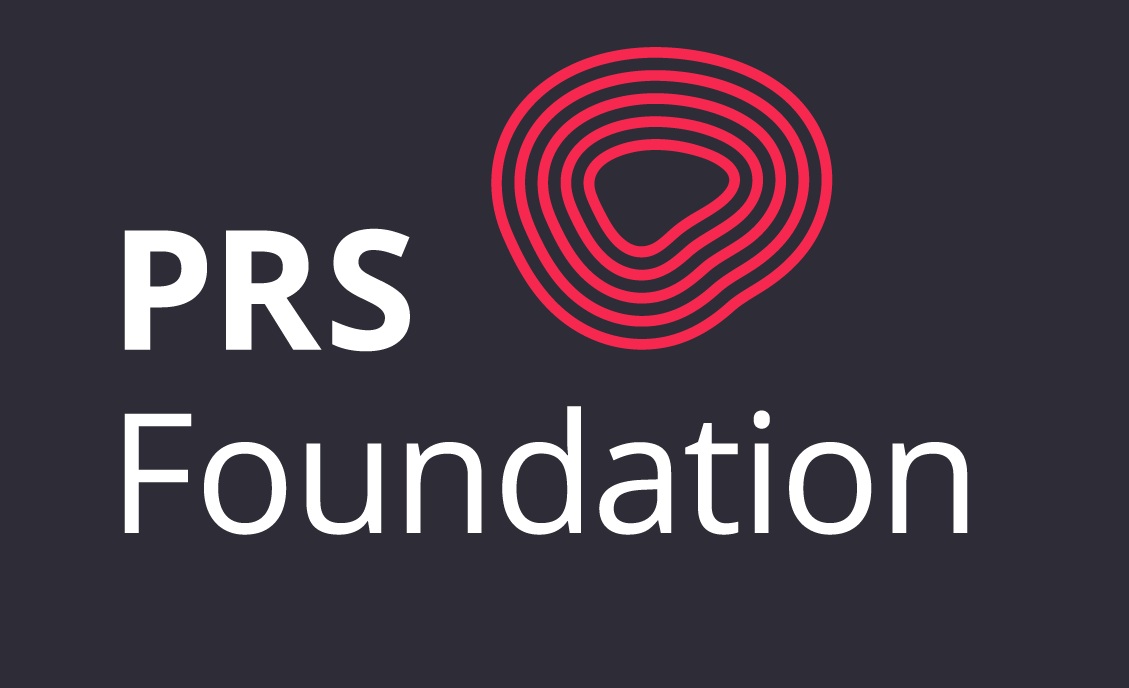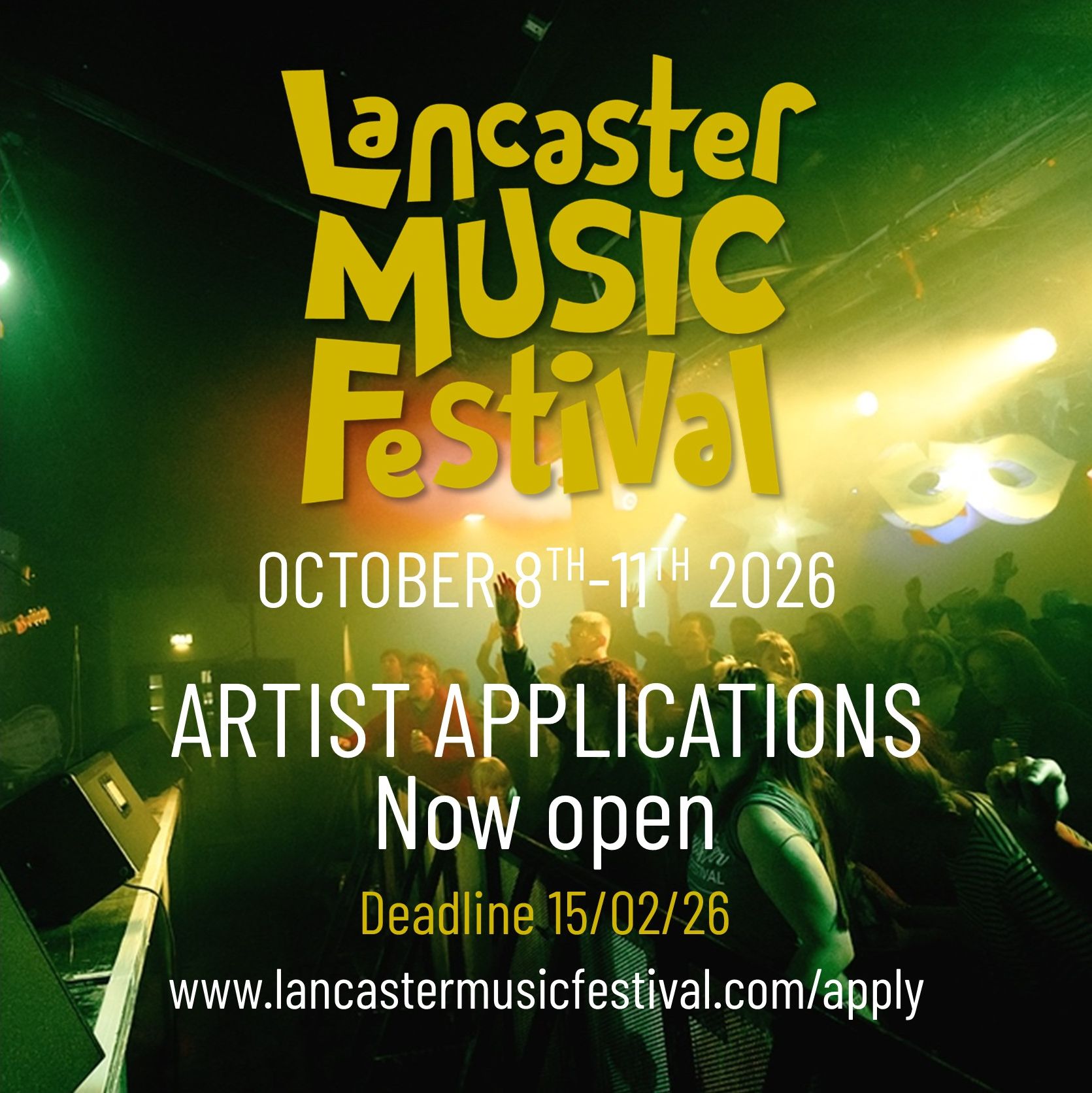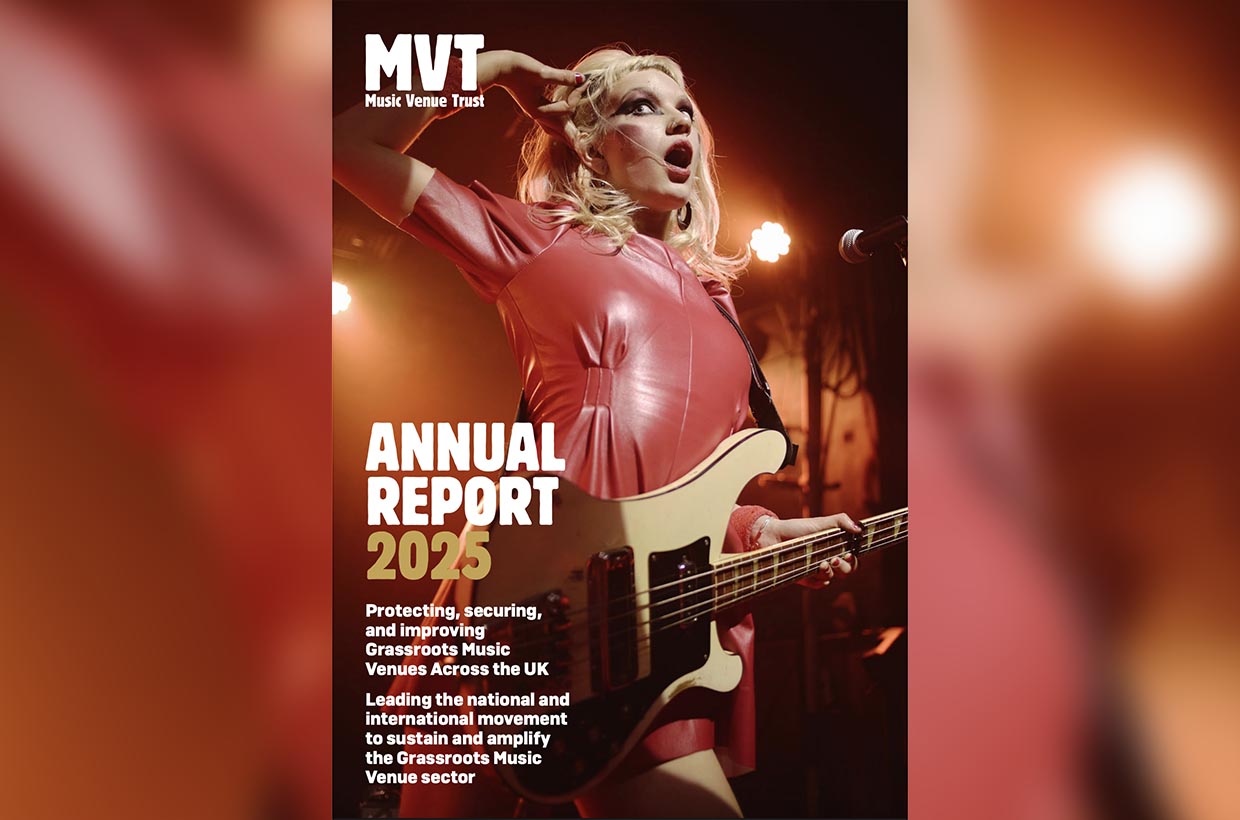Distribution Revolution - How to choose a distribution partner
Blog by Association of Independent Music under Selling & Distributing Your Music

This blog is contributed by Association of Independent Music (AIM), the not-for-profit trade body exclusively representing the UK’s independent music sector. AIM’s members range from the largest, most respected record labels and associated music businesses in the world to self-releasing artists and the next generation of entrepreneurs in music.
The evolution of The Unsigned Guide, from assisting ‘unsigned artists’ with getting seen and signed, to its current iteration where assistance is also provided to help unsigned artists self-release and undertake some traditional label functions themselves, reflects the revolution in the business over the last few decades, and most dramatically the last two.
Led by innovative independent music businesses responding to, and facilitated by, technological developments including entirely new ways to access recorded music, recording agreements and business models for releasing music have also evolved. The traditional recording agreement is no longer the only way for artists to get their music released. Although these agreements are still the best option for some artists’ careers, we now live in a time of unprecedented options for artists to release their recorded music.
With the advent of these changes, there has in recent times been an overwhelming focus on the availability of various DIY digital distribution services (sometimes variously called ‘Artist Services’ or ‘Label Services’), with more and more coming online all the time. Until now, there has been no clear market-wide view of exactly what services are included and how they work or fit into the wider landscape. This results in many artists and managers signing up for services without a full understanding of their options or guidance on how best to take their music into the market both in the short and longer term.
To help bridge this knowledge gap, AIM (The Association of Independent Music) commissioned CMU Insights to undertake the first ever comprehensive research project into distribution. The result was the report ‘Distribution Revolution’, which surveys, maps and demystifies the options and services now available - not only in DIY services, but across distribution more widely. You can download it for free here.
A Smörgåsbord of Services
In brief, the line between distributor and label has blurred, with some distribution businesses offering many of the services previously only available at labels, such as marketing, international networks, PR, sync, and licensing, as well as the more traditional distribution role. A number of labels are also offering more distribution style agreements as options for artists to release under their own imprint. Within these businesses there is a veritable smörgåsbord of services offered.
The image here is taken from Distribution Revolution, showing the range of services which fall into distribution, grouped loosely for ease of understanding and labelling.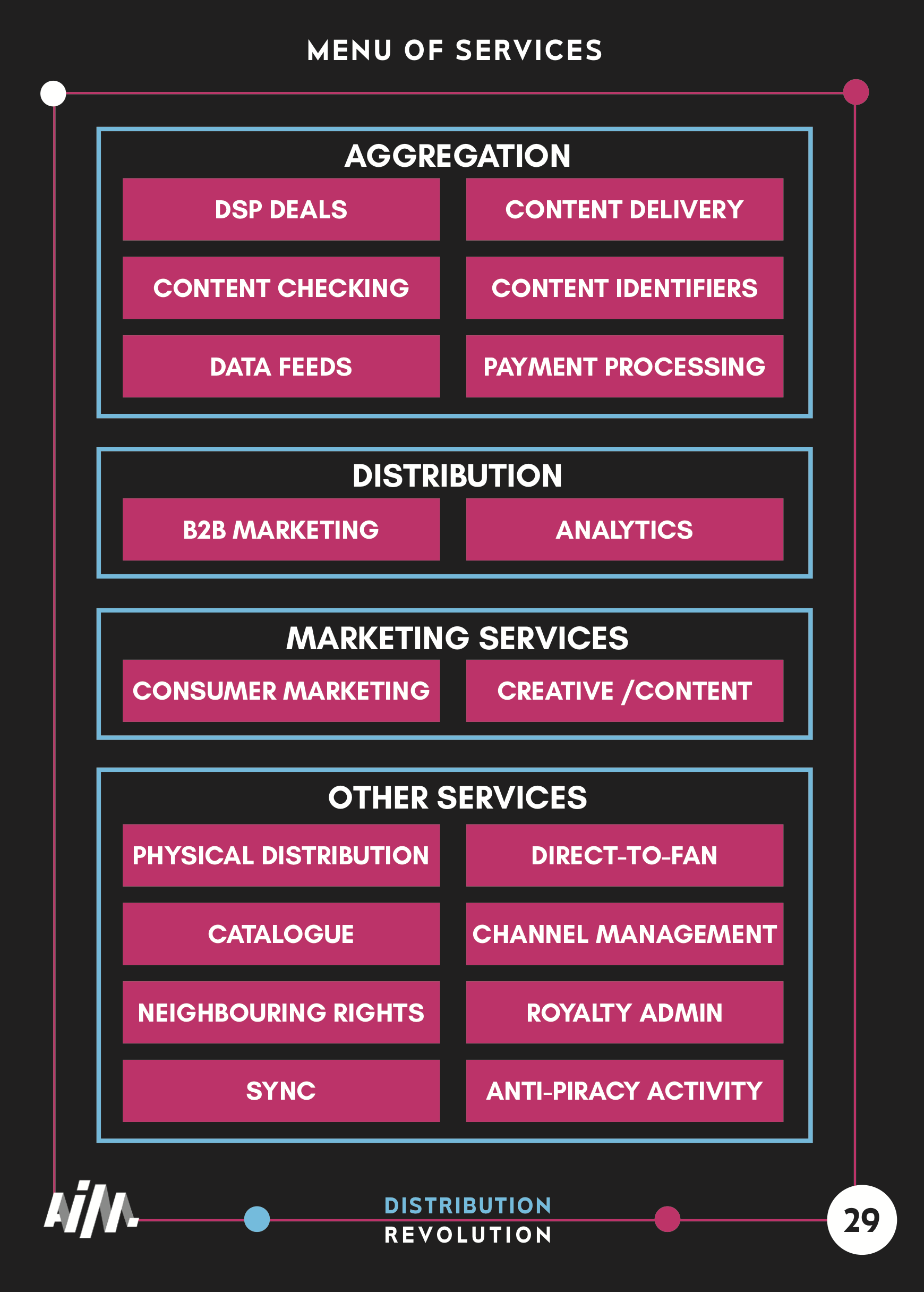
Whether or not you or the artists you work with are self-releasing at the moment, it is likely that you will self-release something at some stage, and it is vital that you are well-informed about distribution in order to maximise the release’s potential.
Additionally, if you sign an agreement with someone else to release your music, record label or otherwise, you will need at least an overview knowledge of distribution in order to help that business maximise your releases and to properly understand your royalty statements. This could affect not only the income from a specific release, but an artist’s long-term earning potential, career prospects and even their part in ensuring the future of a diverse and healthy music ecosystem.
Spoilt for Choice?
One of the most important take-aways from the report is the checklist shown here of points for consideration when choosing a distribution partner. The list is equally valid for artists or managers choosing DIY services or signing a distribution-style agreement with a label, distributor or management company, and for labels and other music-releasing businesses choosing a distribution partner.
Some will allow their clients to pick and choose services and some will only allow a bundled approach (whether you want or need a particular service or not). It is important to be able to knowledgeably weigh up the pros and cons of any options available to you before signing on the dotted line (or clicking the ‘Agree’ button) and parting with often limited cash or giving away a share of income.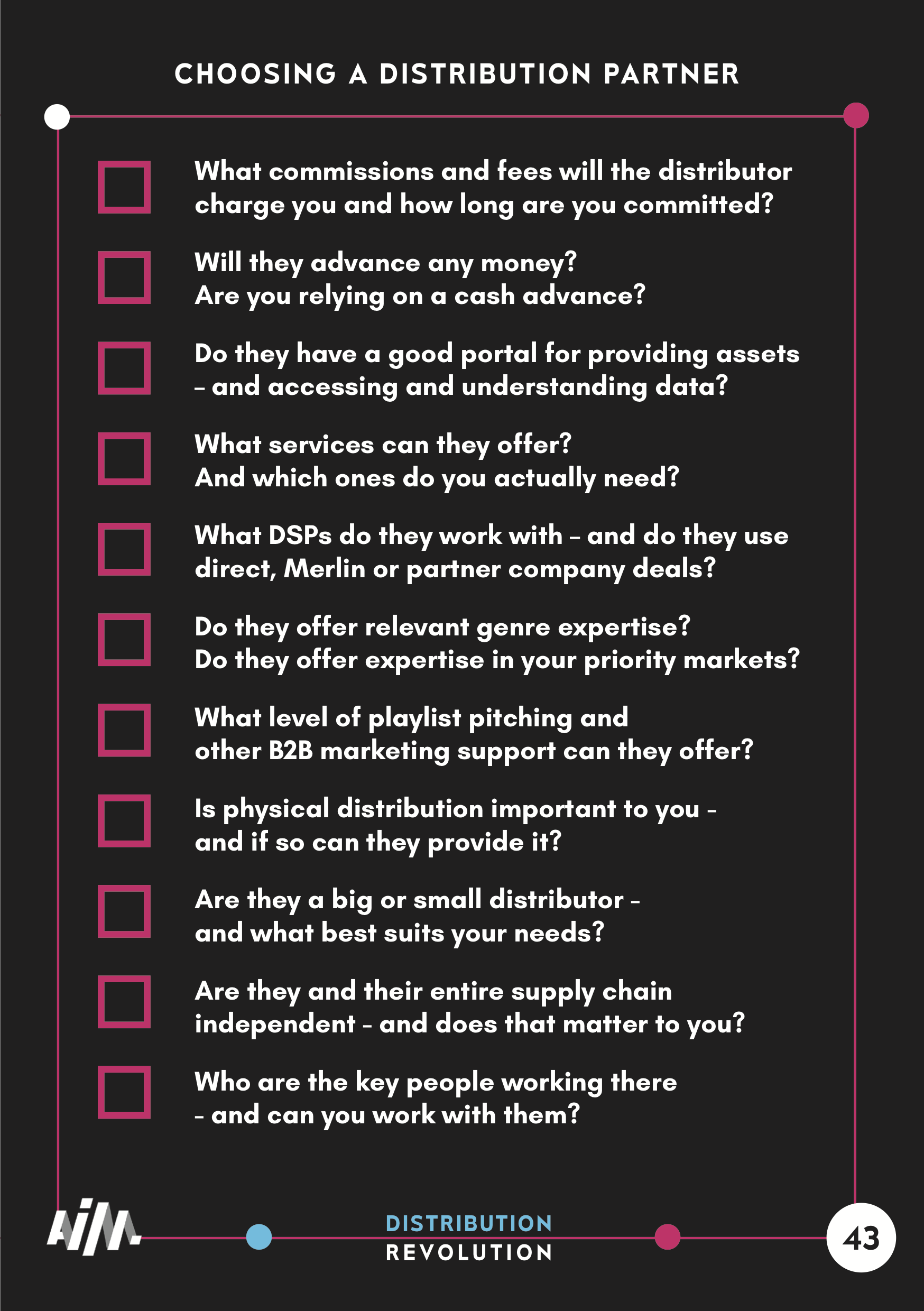
You are, of course, always limited by the options available to you. It may be that you can’t afford to pay any significant fees and must go with someone who offers services for a share of income or take on more services yourself to reduce fees. It may be that you are currently receiving offers from labels and others to release your music. If you have choices, whether now in or in the future, it is always important to consider who you are working with (and who they are working with, and so on).
As an example, climate change is an urgent and pressing issue for many people, who are encouraging their banks, utility companies and others to invest and work more ethically. The same principle applies to any business relationship. Where you have the choice of who to work with and where your money, music and data (the currency of the day!) go, it is important to ensure they share your passions and have your best interests at heart. Not only in the services they offer and their customer service, but your wider interests in the world. You are part of a wider music ecosystem and I encourage you to play that part wisely, for your own sake and that of future artists.
As the report shows, distributors are now having to provide a huge range of services and expertise to stay in business. It is increasingly hard for independently financed distributors to compete with the major-owned distributors: The Orchard (Sony Music), ADA and Level (Warner Music), and Caroline, Spinnup and Ingrooves (all Universal Music Group).
Independents can’t as easily absorb short-term losses and market upheavals, and don’t usually have as much spare cash or large centralised teams to use for development. There are many reasons why an artist or manager might be tempted to work with a major-owned distributor, and there is always temptation in their ability to offer a lucky few sizable advances (though at what longer term cost?) but there is a bigger picture.
As discussed by many, notably Tim Ingham (MBW) in his column for Rolling Stone back in May 2019, the majors have good reason for wanting self-releasers’ business. Not only will they receive fees or a slice of your income, but they also get a free A&R pipe and, perhaps most significantly, your releases will be included in their reported market share figures. Market share figures are used to wield greater negotiating weight with DSPs and others, and to carry weight when, for example, lobbying for advantageous legal and regulatory changes. There are seeming upsides to the former, with potentially better income available to self-releasers using major DIY services, but note that these upsides may be negotiated into equity deals and retained by shareholders rather than passed down to self-releasers and label clients.
Independent distributors are champions of best practice. See, for example, Simon Wills’, CEO of Absolute Label Services ‘5 Cast Iron Commitments Artists Should Demand From Digital Distributors’ article in MBW.
There is more to come as AIM continues the work started by the Distribution Revolution report working alongside its distribution member companies to communicate and facilitate good industry practices. Watch this space!
A full list of widely-respected independent businesses in distribution is available here.
Tags
Association of Independent Music offer advice on choosing a digital distributor to self release your music


